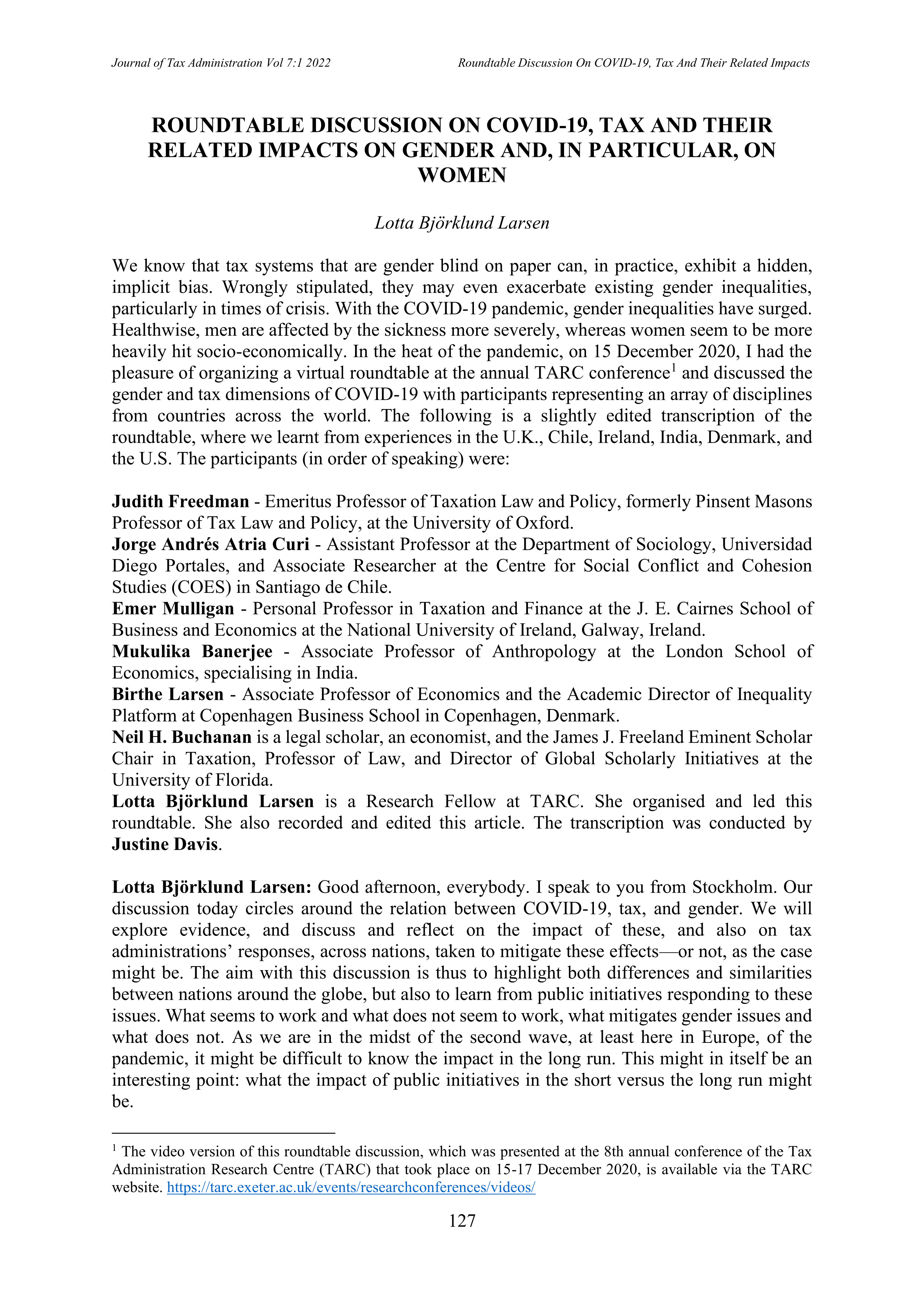Roundtable Discussion on COVID-19, Tax and their Related Impacts on Gender and, in Particular, on Women
Abstract
We know that tax systems that are gender blind on paper can, in practice, exhibit a hidden, implicit bias. Wrongly stipulated, they may even exacerbate existing gender inequalities, particularly in times of crisis. With the COVID-19 pandemic, gender inequalities have surged. Healthwise, men are affected by the sickness more severely, whereas women seem to be more heavily hit socio-economically. In the heat of the pandemic, on 15 December 2020, I had the pleasure of organizing a virtual roundtable at the annual TARC conference and discussed the gender and tax dimensions of COVID-19 with participants representing an array of disciplines from countries across the world. The following is a slightly edited transcription of the roundtable, where we learnt from experiences in the U.K., Chile, Ireland, India, Denmark, and the U.S.
References
Adams-Prassl, A., Boneva, T., Golin, B., & Rauh, C. (2020). Inequality in the impact of the coronavirus shock: Evidence from real time surveys. Journal of Public Economics, 189, 104245. https://doi.org/10.1016/j.jpubeco.2020.104245
Crossley, T., Fisher, P., Levell, P., & Low, H. (2021). A year of COVID: The evolution of labour market and financial inequalities through the crisis (IFS Working Paper 21/39). https://ifs.org.uk/uploads/WP202139-A-year-of-COVID-the-evolution-of-labour-market-and-financial-inequalities-through-the-crisis-3.pdf
Wolf, A (2013). The XX factor: How working women are creating a new society. London: Profile Books.

Downloads
Published
How to Cite
Issue
Section
License
Copyright (c) 2022 Lotta Björklund Larsen

This work is licensed under a Creative Commons Attribution 4.0 International License.
Our open access status means that authors retain the copyright of their work. However, all papers published in JOTA are done so under a Creative Commons Attribution 4.0 International license (CC BY). This means that others can share and/or adapt your work without your permission as long as they follow certain rules, including attributing your work correctly.
You can learn more about this on our Open Access, Licensing, and Copyright Policies page.



